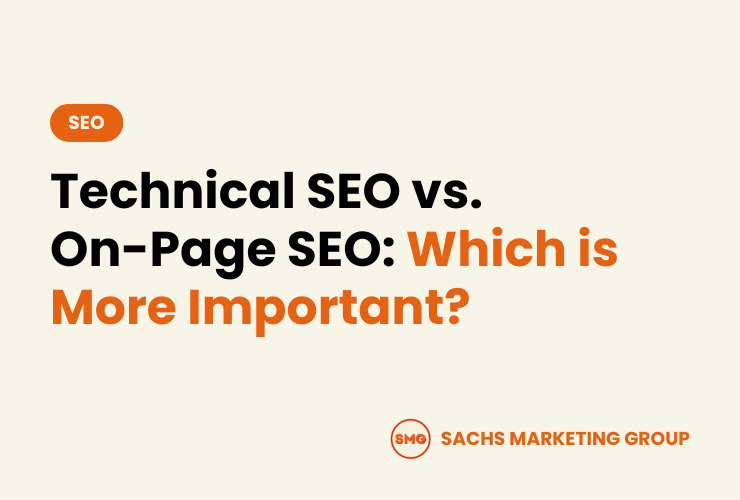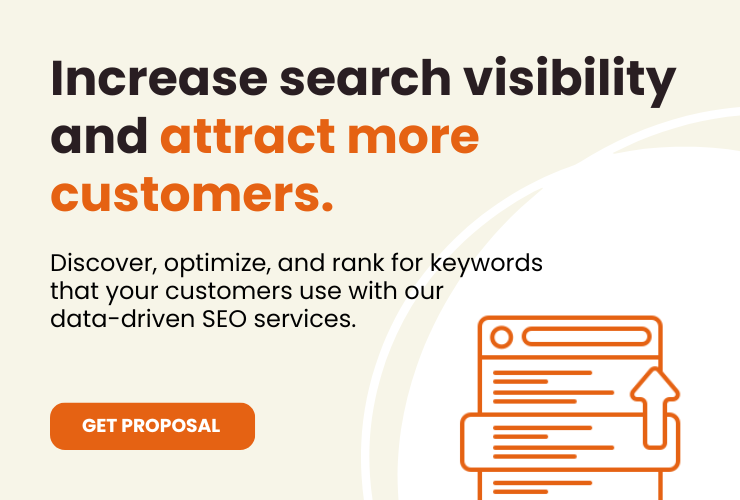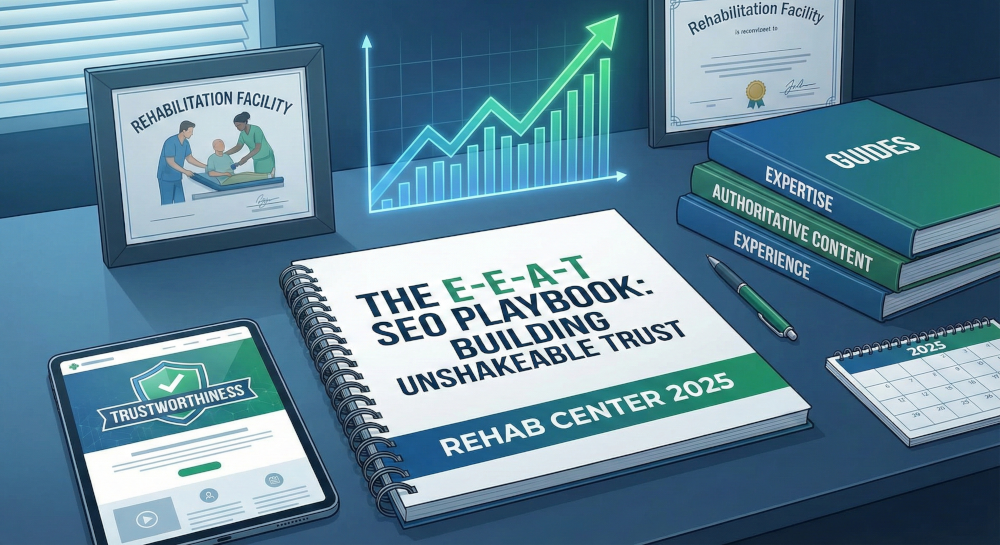While technical SEO focuses on the backend architecture and elements that affect site speed and crawlability, on-page SEO centers around content optimization and user experience. Both are crucial for ranking well on search engines.
Search engine optimization (SEO) is an essential component of any digital marketing strategy, yet it can be challenging to navigate its various facets. Two often confused elements are technical SEO and on-page SEO. Understanding the differences and synergies between these two is key to boosting your website’s search engine rankings.
In this article, you will learn everything you need to know about technical SEO vs. on-page SEO.
Overview
What is Technical SEO?
Technical SEO refers to the optimization of website and server configurations that help search engines crawl and index your website more efficiently. It’s not about content creation but rather the foundation that makes it possible for your content to be discovered.
Technical SEO plays a crucial role in helping your website rank well by ensuring that search engines can understand it easily.
Here are some important aspects of technical SEO:
- Site Speed Optimization: A fast-loading website is essential for both user experience and search engine rankings. Compress images, utilize browser caching, and minimize code for better performance.
- Mobile-Friendliness: Ensuring your website is mobile-friendly is crucial, especially since Google adopts a mobile-first indexing approach.
- Secure and Accessible Website: Using HTTPS not only secures your website but also helps in improving its rankings.
- XML Sitemaps: An XML sitemap helps search engines understand the structure of your website and index it more efficiently.
- Robots.txt File: This file tells search engines what pages or parts of your site they should or shouldn’t crawl and index.
- Canonical Tags: Using canonical tags prevent duplicate content issues by specifying the “preferred” version of a web page, helping it gain the ranking it deserves.
- Structured Data Markup: This helps search engines understand the context of your content, enabling better search visibility and enriched search results.
- Hreflang Tags: For multilingual websites, hreflang tags are essential to ensure that the correct language version of a website is displayed to users.
- 404 Error Management: Properly managing 404 errors and implementing 301 redirects can help maintain link equity and keep user experience positive.
- Website Architecture: A well-designed URL structure and layout can significantly help search engines crawl your website more effectively, while also improving user experience.
What is On-page SEO?
On-page SEO involves all the on-site elements that you can optimize to make your website more search-engine friendly. These include content elements, the HTML source code, and various other technical factors. On-page SEO is crucial because it helps search engines understand your website and its content, and whether it is relevant to a searcher’s query.
Here are some specific aspects of on-page SEO:
- Keyword Optimization: The right use of keywords in titles, headers, and body content helps to make the page more relevant to search queries. This is one of the most basic yet crucial aspects of on-page SEO.
- Meta Descriptions: A compelling meta description gives a brief summary of your page’s content and can influence click-through rates from search engine results.
- Header Tags: Using header tags (H1, H2, H3, etc.) organizes your content and makes it easier for search engines to understand the context and importance of different sections.
- Internal Linking: Well-placed internal links guide visitors to other valuable and related content on your site, thereby improving user experience and boosting the SEO value of other pages.
- Content Quality: Well-researched and regularly updated content that fulfills user intent is highly likely to be rewarded with better search engine rankings.
- Image Optimization: Image alt text and file names are important for SEO. They provide context to search engines and can result in better image search visibility.
- URL Structure: Simple, descriptive URLs that contain keywords are not only user-friendly but are also effective for search engine optimization.
- Social Sharing Buttons: While not a direct ranking factor, easily accessible social sharing buttons do increase the likelihood of social sharing, which can enhance content reach and visibility.
- Schema Markup: This is a code that you put on your website to help search engines provide more informative results for users. Schema markup can significantly impact how your snippets are displayed in search results.
- Page Loading Speed: Although primarily a technical SEO factor, on-page elements like image size, embedded videos, or third-party scripts can impact page loading speed, which in turn affects SEO.
Technical SEO vs. On-page SEO: Which is More Important?
The discussion about the importance of technical SEO versus on-page SEO often tends to create division among SEO professionals. Some argue that the technical aspects of SEO serve as the backbone of any website, ensuring its “crawlability” and indexation by search engines. Others contend that on-page elements like quality content, meta-descriptions, and headers are what truly engage users and therefore hold more weight in rankings. The reality is that both are two sides of the same coin; you can’t expect to succeed in the SEO realm without giving due attention to both. Just like a car needs both a robust engine and an attractive exterior to be deemed valuable, an effective SEO strategy requires the strengths of both technical and on-page SEO.
To illustrate, consider building a house: Technical SEO is akin to the foundation and the structural integrity of the house. You could have the most beautiful interiors (analogous to on-page SEO), but if the foundation is weak, the house will ultimately collapse. Conversely, no matter how strong your foundation is, a house with unappealing aesthetics and poor layout won’t attract many dwellers or visitors. In the digital landscape, Technical SEO makes your site navigable for search engines, while on-page SEO ensures that once visitors arrive, they find what they’re looking for and ideally take some action (like making a purchase or signing up for a newsletter).
The Importance of Both
The argument is not about choosing one over the other but about recognizing that both technical SEO and on-page SEO play unique roles that contribute to your online success. Technical SEO is all about making your website’s structure search-engine friendly. It involves optimizing your robots.txt files, improving site speed, ensuring mobile-friendliness, and structuring data, among other tasks. These are foundational requirements; failing to get these right could mean your website won’t even get indexed by search engines, let alone rank high.
On-page SEO, on the other hand, focuses on the content elements that are actually visible to your visitors. It’s about ensuring that this content is high-quality, relevant, and can effectively meet the needs or solve the problems of your audience. By using relevant keywords in your content, creating compelling meta descriptions, and using headers judiciously, you guide the search engines in understanding the context and relevance of your pages. You also create a better user experience, which search engines reward with higher rankings.
To sum it up, both Technical SEO and on-page SEO are indispensable parts of the SEO puzzle. Overlooking either technical SEO or on-page SEO is akin to having a car with a powerful engine but faulty tires; you won’t get far, and the journey won’t be smooth. Therefore, a balanced, holistic approach to SEO—one that comprehensively incorporates both technical and on-page elements—is the key to a successful SEO strategy.
Need Help with Your SEO?
Are you struggling with your SEO strategy and can’t decide where to focus – technical SEO or on-page SEO?
Sachs Marketing Group offers specialized SEO services that cater to all your needs. Imagine having an optimized website that not only ranks well in search engine results but also provides an excellent user experience.
Contact us today to see how we can make this vision a reality for you.
Conclusion
Both technical SEO and on-page SEO are vital for your website’s success in search engines. While it may seem complicated to juggle both, understanding their unique functionalities can help you utilize them to their fullest potential.
Don’t think of it as technical SEO vs. on-page SEO – think of it as a harmonious blend of efforts that help you reach your target audience effectively.
Whether you’re a DIY marketer or seeking professional help, it’s crucial to give equal attention to both aspects for a well-rounded SEO strategy.
Contact us today to get the conversation started!













